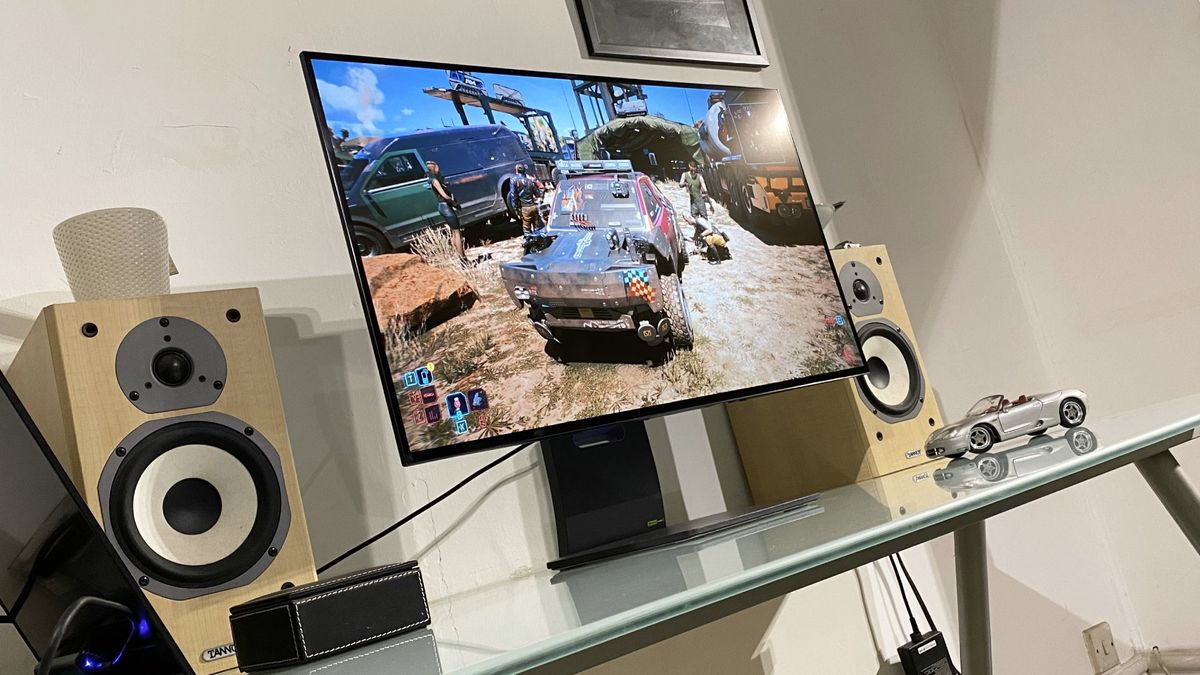Now it’d be nice to see them innovate their way out of selling customer data as standard, even when the customer paid over 2K for their device.
I mean, LG Displays aren’t bad in that regard. The different departments of some of these conglomerates might as well be wholly different companies.
Also, if you buy an OLED Monitor from another Vendor, chances aren’t all that bad it’s a LG panel either way.
Oh, I’m not questioning the quality of their displays, they’re certainly up there as being some of the best available. I’m referring to something Louis Rossman has covered before about how even their expensive units have information gathering turned on as standard. When paying over 2 grand for a TV, I’d expect my information wouldn’t be subsidising the cost anymore.
I know, but what other OLED panel manufacturers are there? Samsung? Not sure their smart TVs are better, privacy wise.
Actually, I’m pretty sure any manufacturer that also sells high end smart TVs has a 2k TV that sells your data.
I also never understood his apparent expectation that a higher end model from a manufacturer that sells data will be more privacy friendly. Wealthier people make for more expensive ad sales.
I wouldn’t touch Samsung with a 10’ barge pole. That said, I’m not interested in OLED. MicroLED looks like a much more interesting technology to me.
As for the expectation of not having your data sold when spending more, I’d say it stems from the free and cheap business model of prices being low because they subsidise the cost by selling your data. If what you’re getting is free/cheap, you are the product, thus if you’re paying serious money, the expectation is that you’ve bought it and there’s no subsidising going on.
Personally, when the time comes for me to upgrade, I’ll be looking at either a commercial TV or a large monitor (not ultra wide) since I don’t use smart TV features and already have a setup to not need internal speakers.
That presumes that those corps have any respect for their customers.
Anyway, I get the Smart TV Problem. I personally solved it by living in a studio with no space for a TV, but I like your approach too.
A good point, and I think they’ve been doing a fantastic job of proving that pretty much no corp respects their customers.
That’s certainly a reason to not have a TV. My bordering requirement of one is because I live pretty much all of my life through a computer but don’t have to sit at a desk all of the time of I use a TV as a computer monitor.
Hoping this also tackles the rampant VRR flickering issue on every single OLED monitor currently on the market.
literally don’t care about brightness. do people game outdoors or something? I have never used any display over 60% of its brighness capability.
fix vrr flicker and we can talk.
just when I’m watching anything that’s supposed to be dramatic on HBO
Hope so! modern OLED’s are far more resistant to fading, but would be nice for that to be a thing of the past!
Isn’t this what quantum dots are supposed to do? My new QDOLED TV is already uncomfortable at full brightness IMO.
Exactly my thoughts as well. At 1000 nits peak the OLED screens I have are already painfully bright under “ideal” viewing conditions (i.e., dim lighting), and easily visible in poor conditions (sunny day, curtains/blinds open). What on earth are they building them brighter for? Outdoor daytime viewing?
What on earth are they building them brighter for?
HDR I think
Sure, but even for small highlights where you’re going to be hitting HDR peaks past 1000 nits or so you’re still getting into painfully bright territory when viewing it indoors under normal conditions. Does anyone actually want specular highlights in outdoor scenes to be literally difficult to look at directly as if they were real 10,000+ nits reflections of sunlight?
I understand pushing 2000 or even 3000 nits on mobile device displays though. Sometimes there’s a need to compete with direct sunlight when viewing outdoors.
Partially HDR but also full field SDR brightness. They’re a lot dimmer than competing LCD screens (approx 250 nits at 100% brightness).
Would love to get the brightness and vibrancy of CRTs in a modern display.
I think most modern screens are brighter and more vibrant than a CRT (with proper HDR, doubt any CRT could be 1200+ nits) , but definitely the pixel switching, smearing and delay is a lot worse.
CRTs aren’t very bright though. LED backlit monitors can output absurd levels of brightness.
i heard that one multiple times before over the years, yeah
What kind of spyware is it running?
Was the problem that if they did that first time round you wouldn’t have to upgrade your TV now?
I’m more bothered about the positioning of those speakers.
It’s ok to dream about the future LG, but how about releasing firmware upgrades in the present to fix your current OLED monitors?








